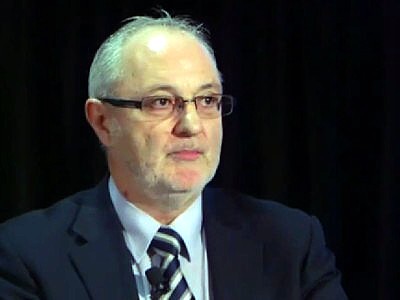Go-live looms for postponed 'mainframe-as-a-service' tax platform

New Zealand's Inland Revenue Department has had second thoughts about switching to a new mainframe platform in the middle of the peak tax season, and will now go live next month.
The tax office is essentially shifting to "mainframe as a service" under a NZ$130 million contract inked with Unisys late last year to support its core FIRST tax processing system, which has been heavily modified over 22 years of operation.

"This service will provide Inland Revenue with the necessary continuity of core tax and social policy systems while we transform," the department said in its annual report, released last week.
"Our initial plan was that this would be operational before our 2013-14 peak season. We decided to reschedule this implementation until November 2014 to ensure successful implementation outside our peak period."
The old FIRST system will run in parallel with a NZ$1.5 billion transformation project, which Accenture is likely to lead after being named IRD's favoured supplier of design services earlier this month.
Exactly who will deliver the new software system for that transformation remains unclear, but IRD appears to be favouring commercial packages as an alternative to development.
"A separate part of our work has been investigating off-the-shelf commercial software options," it said in its report. "This helps us understand their capabilities before we start on our design phase. This work continues into 2015."
At the end of September, IRD asked for expressions of interest for its future software platform.
"We need experienced and qualified software providers who have implemented similar systems of this size," said Greg James, IRD's deputy commissioner of change.
"We want a commercial off-the-shelf (COTS) solution, as the technology is flexible and can respond to policy changes and new technologies."
James said a key objective is that processes and systems will be "simple at the front, smart at the back".
"Inland Revenue has a once-in-a-generation opportunity to make tax easier for everyone, and selecting the best software experts is critical to the project's success," he said.
"We are not taking any chances when it comes to delivering the best tax system possible for New Zealand, and experience counts."
A full tender is planned for release to the shortlisted COTS providers in March or April 2015.
IRD also appointed on Wednesday a promised reference group to provide IT industry input into the transformation project. Myles Ward, chief technology officer at Inland Revenue, will chair the group alongside James.
"Inland Revenue is confident the group's members are a good representation of New Zealand's ICT sector and will be an excellent sounding board as we modernise every aspect of our tax system from business processes to customer services," said Ward.
The Information and Communications Technology (ICT) Reference Group will meet quarterly with the first meeting next month.
Also in its annual report, IRD said it is taking advantage of all-of-government services rolled out through the government CIO's office and the Department of Internal Affairs. In particular, the department is using infrastructure as a service and storage as a service.
"We are simplifying our technology environment and taking advantage of externally provided common and repeatable services. We will continue to take advantage of these services where it makes sense to do so," it said.